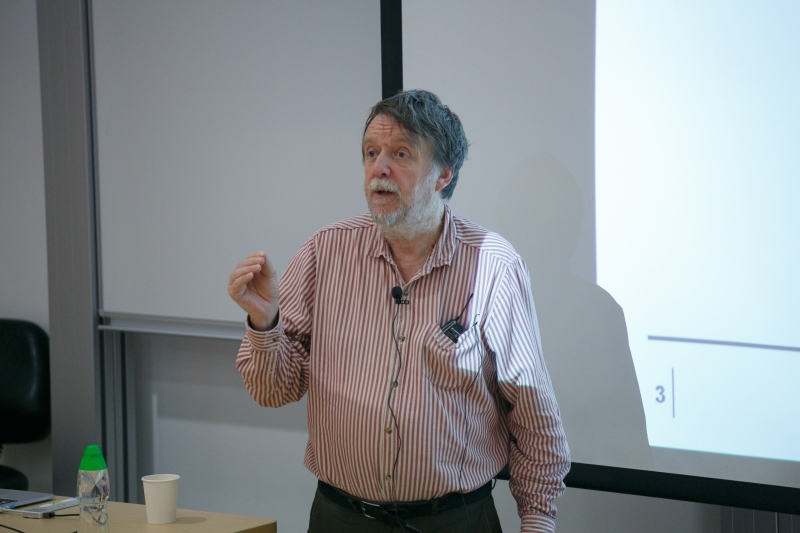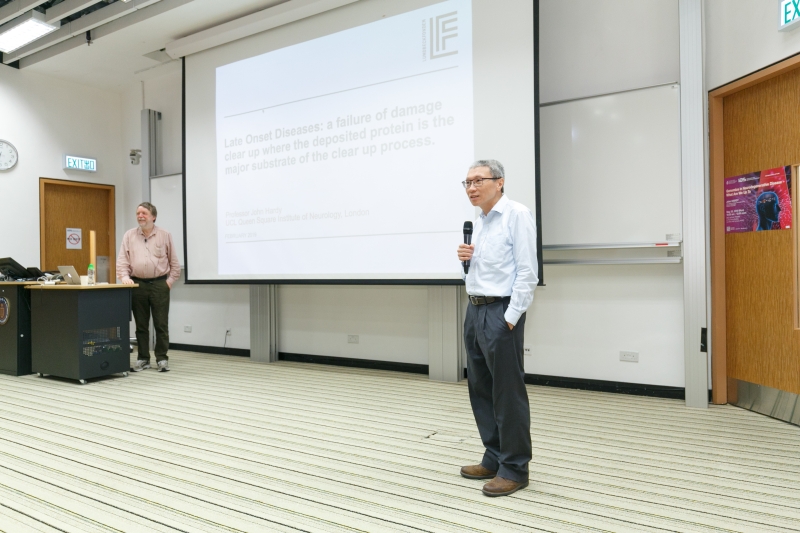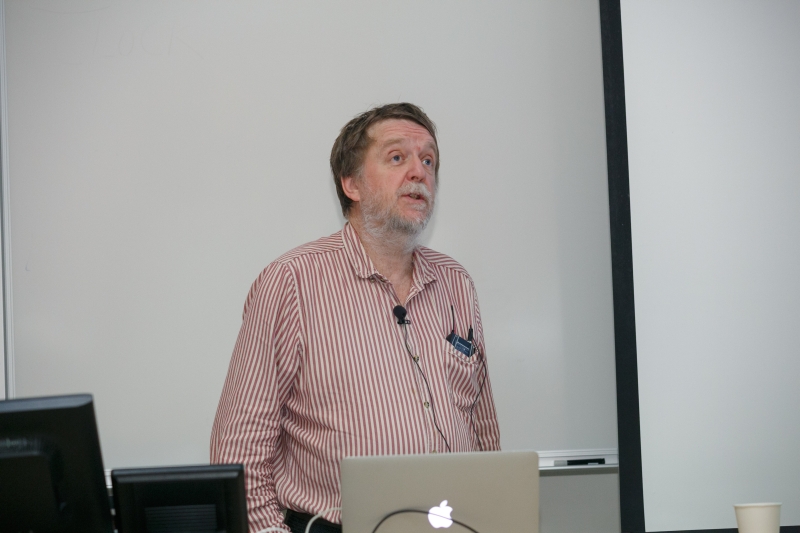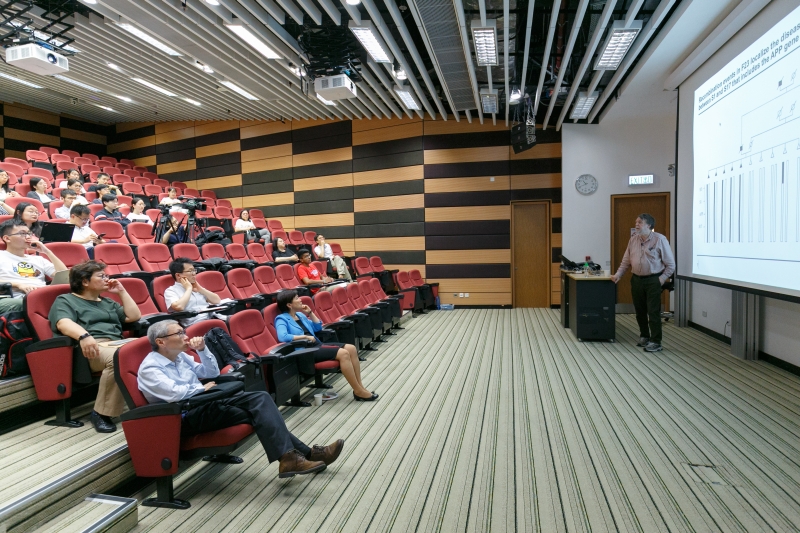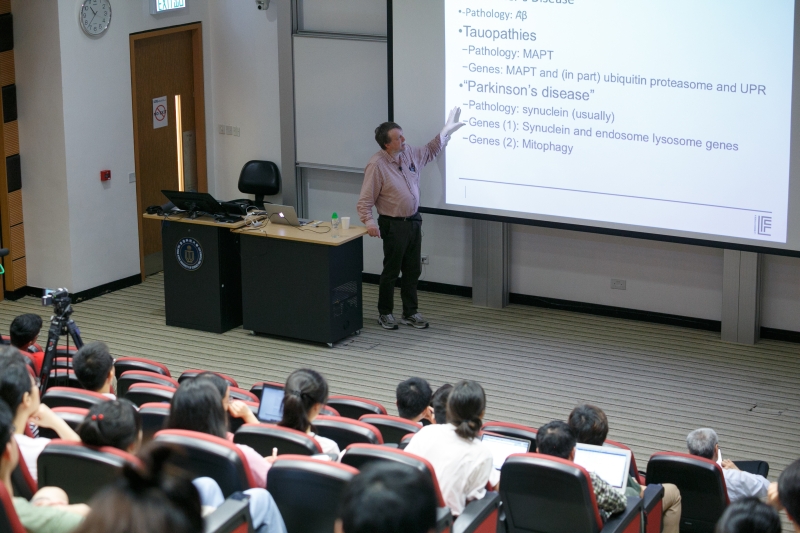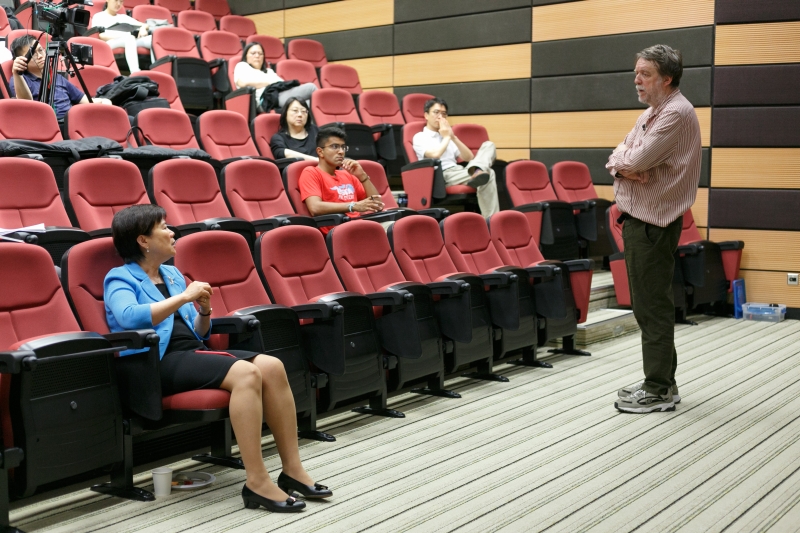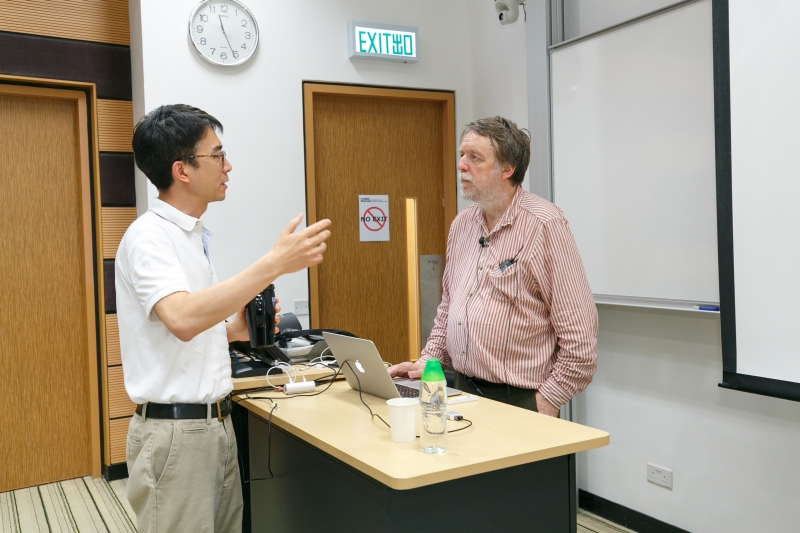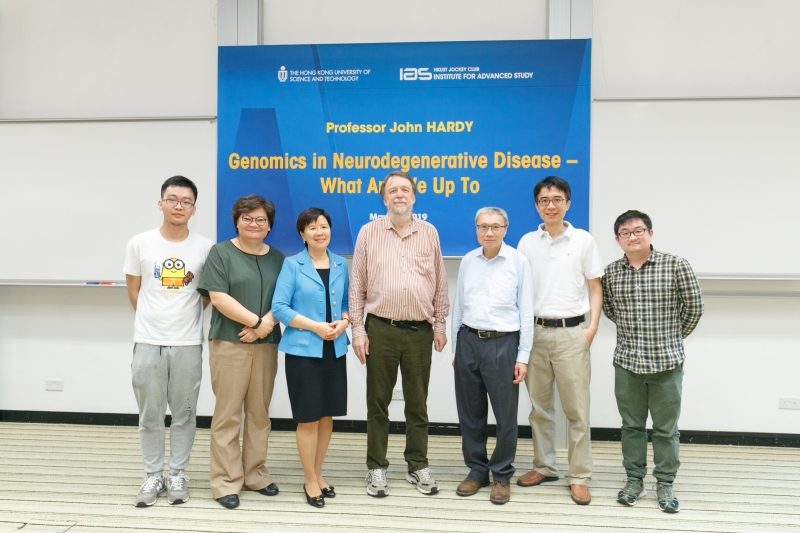Genomics in Neurodegenerative Disease – What Are We Up To
Abstract
Genetic analyses of the common neurodegenerative diseases are revealing many loci for each of them, and point to approaches in management. For example, the association of amyloid precursor protein (APP) with Alzheimer’s disease and the subsequent development of Amyloid hypotheses are the foundation for the many Alzheimer’s disease trials. The recent failures of targeting amyloid in Alzheimer’s disease treatment prompt second thoughts on the approach, including but not limited to case selection and timing of treatment.
Based on the findings of multiple genetic loci in recent past, researchers using other omics and bioinformatics are now starting to put together the jigsaw. This explosion of information begins to reveal commonalities on the loci involved in each disease entity. These are for Alzheimer’s disease, amyloid induced neuronal damage, for typical Parkinson’s disease, lysosomes and autophagic clearance, for early onset Parkinson’s disease, mitophagy, for fronto-temporal dementia / amyotrophic lateral sclerosis, the ubiquitin proteasome, and for the pure amyotrophic lateral sclerosis, the stress granule response.
This idea of a failing damage response will hopefully begin to enable links to be drawn between the genetic, transcriptomics, biomarkers and pathogenesis of the diseases. Coupled with other clinical information and epidemiological assessments of risk factors for the diseases, these will provide new angles in the management of neurodegenerative diseases.
About the speaker
Prof. John Hardy received his BS in Biochemistry from the University of Leeds in 1976 and his PhD in Neurochemistry from the Imperial College London in 1981. He spent his early career in the University of Newcastle upon Tyne, the University of Umea and St Mary's Hospital (which later merged with the Imperial College London). In 1992, he moved to the US to take up the position of Eric Pfeiffer Endowed Chair in Alzheimer's Disease Research at the University of South Florida. He then joined the Mayo Clinic Jacksonville in 1996 as a Consultant and Professor of Pharmacology and chaired the Department of Neuroscience during 1999-2001. In 2001, he moved to the National Institute on Aging of the US National Institutes of Health as the Chief of Laboratory of Neurogenetics. He returned to the UK in 2007 as a Professor of Neuroscience at the University College London (UCL). He is currently the Head of the Department of Molecular Neuroscience at UCL and the Chair of Molecular Biology of Neurological Disease at the UCL Institute of Neurology.
Prof. Hardy’s research interests are in the genetic analysis of neurodegenerative disease. He contributed to a critical breakthrough in understanding what goes wrong in the brains of people suffering from Alzheimer’s disease, the most common form of dementia. He has since led a broader effort to understand the genetic factors underlying several forms of degenerative brain disease, including Parkinson’s disease and motor neuron disease. He discovered that a mutation in the gene for amyloid precursor protein (APP) caused deposits of a substance called amyloid to form in brain tissue, associated with early-onset Alzheimer’s. Deposits of amyloid, which kills brain cells, later proved to be a primary cause of the disease.
Prof. Hardy was elected a Member of the UK Academy of Medical Sciences in 2008, a Fellow of the UK Royal Society in 2009, of the Institute of Biology (now known as the UK Royal Society of Biology) in 2011 and of the European Molecular Biology Organization in 2015. He has received numerous awards including the Dan David Prize (2014), the Thudichum Medal (2015), the Hartwig Piepenbrock-DZNE Prize (2015) and the Helis Prize (2016). In recognition of his pioneering research in neurodegeneration, he was awarded the prestigious Breakthrough Prize in Life Sciences in 2016 and the Brain Prize in 2018.

